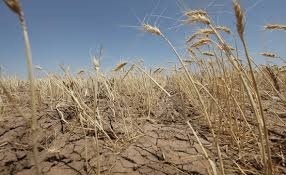Crop failures in Iran and Syria will force them to import more wheat in the new season

Some of the largest buyers of Russian wheat - Iran and Syria - will sharply reduce production and increase imports in the 2025/26 MY. It is expected that due to drought and low state procurement prices, Iran will reduce domestic production and significantly increase wheat imports between the beginning of the calendar year and the end of March.
The head of the National Syndicate of Wheat Farmers of Iran, Ataollah Hashemi, said on Sunday that Iran's domestic wheat production in the period from April to August decreased by 5 million tons, or 31%, to nearly 11 million tons compared to last year, and state purchases of local wheat fell by 4.4 million tons, or 36%, to 7.6 million tons.
According to forecasts, wheat imports to Iran in the period until the end of March will amount to about 4.5 million tons, Press TV reports.
The reduction in the domestic wheat harvest was mainly due to drought affecting arid regions across Iran, as well as government procurement prices being lower than free market prices.
In April, representatives of Iran's Ministry of Agriculture said that this calendar year the country may be forced to import up to 6 million tons of wheat to meet growing domestic demand for the grain.
In Syria, wheat production has fallen by 40% due to the worst drought in 36 years and, according to the FAO, will not exceed 1.2 million tons, which is 2.8 million tons less than annual consumption. However, the country's authorities have not yet been able to ensure sufficient grain imports due to financial problems, Reuters reports.
This season, the Syrian government has purchased only 373.5 thousand tons of wheat from local farmers, which is half of last year's volume, so by the end of the year it will be necessary to import about 2.55 million tons of wheat.
In a June report, the UN FAO estimated this year's wheat deficit in Syria at 2.73 million tons, which would be enough to feed about 16 million people for a year.
Food shortages have become a major concern for President Ahmed Hussein al-Sharaa, whose government is struggling to rebuild the country after 14 years of civil war. But the government has been slow to mobilize international support for large-scale grain purchases. So far, Syria has received only limited emergency aid, including 220,000 tons of wheat from Iraq and 500 tons of flour from Ukraine.
Before the civil war, Syria grew up to 4 million tons of wheat per year under favorable conditions, of which it exported 1 million tons, but after the war, production decreased, and the Assad regime imported most of the wheat from the Russian Federation.


